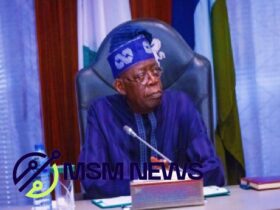On the occasion of the 75th anniversary of the People’s Progressive Party (PPP), the party marked the milestone with celebration, praising its contributions to Guyana’s development. In his address, President Irfaan Ali highlighted the PPP’s historic role in shaping the nation, making claim to being committed to democracy, social justice, and national unity. However, in a glaring omission, the president ignored the significant role that Forbes Burnham, a founding member and leader of the PPP, played in its creation—despite Burnham’s pivotal contribution to naming the party and shaping its early development.
The PPP was founded on 1st January 1950. It was born out of a shared vision for an independent and prosperous Guyana with a role for all Guyanese. Some of its founding leaders were Eusi Kwayana (formerly Sydney King), Jainarine Singh, Ashton Chase, Jane Phillips-Gay, Janet Jagan, J.P. Latchmansingh, Joycelyn Hubbard.

While Ali credits the party for championing universal adult suffrage, he ignored role the trade union movement played the fight for one man one vote and internal self-government. The Trade Union Movement, under the leadership of Hubert Nathaniel Critchlow, began these struggles in 1926 which the emerging political leadership adopted and advanced in the 1940s.
It was Burnham, alongside Dr. Cheddi Jagan, who co-founded the PPP and helped shape its early direction. Burnham was the Party’s first Chairman, and Cheddi Jagan its Leader.
The party was initially a product of the collaborative efforts of both men, but their political partnership fractured over time, leading to Burnham’s eventual split and the formation of the People’s National Congress (PNC).

Political analysts, noting the split of the PPP-Jagan faction and PPP-Burnham faction, said Burnham naming of the party may have influenced his desire to hold on the party.
Ali also ignored Kawyana’s role, as the one who wrote the Party’s song; and Latchmansingh, Jane Phillips-Gay and Singh, who were key players in shaping the party’s foundation and guiding principles. The contribution of Chase, who stayed with the party until death, was also ignored.
“For President Ali to celebrate the PPP’s 75th anniversary while disregarding Forbes Burnham’s contribution is highly telling,” said one political commentator. “While the party is rightfully focused on its achievements, it cannot erase the fact that Burnham, alongside Jagan, was integral to the formation of the PPP. This selective history undermines the very foundation of the party’s legacy.”

Burnham and Jagan’s fight for independence through the PPP
On 19th October 1953 Burnham and Jagan travelled to Suriname then to London for a meeting with the British Government to discuss the British Government’s suspension of the British Guiana Constitution.
In November 1953 the two travelled to India and met with India Prime Minister Nehru, and later addressed both members of India’s house of Parliament soliciting support for “the struggle for freedom” in British Guiana (later Guyana).
Burnham’s break from the PPP in 1955 and the subsequent political rivalry with Jagan has been a defining feature of Guyana’s political history. However, despite the strained relationship between the two men, Burnham’s early work in the PPP cannot be ignored.
By celebrating the PPP’s anniversary without acknowledging Burnham’s founding role, President Ali’s speech raised questions about the broader narrative the current administration wishes to project. Is the party’s history being rewritten to suit the divisive contemporary political dynamics?
The omission has left many wondering whether true national reconciliation is possible without recognising the contributions of all those who helped shape Guyana’s political landscape, even those with whom the current ruling party may have had a contentious history.
It remains to be seen whether the party will acknowledge the full spectrum of its origins, including the contributions of Forbes Burnham, who played a crucial role in the party’s early years.


Leave a Reply